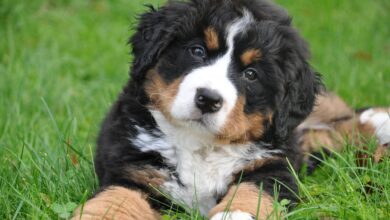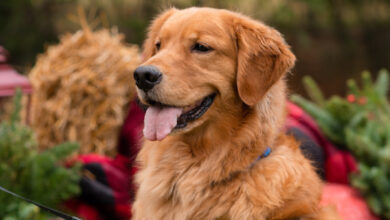9 Hybrid Dog Breeds With the Biggest Vet Bills
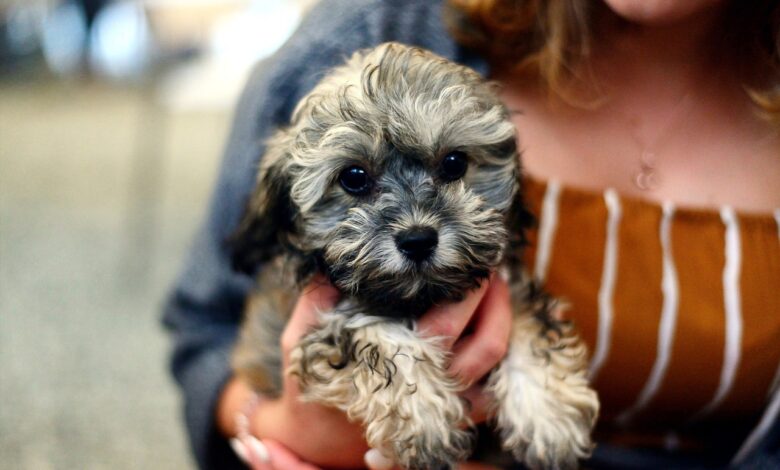
Owning a mixed-breed dog often comes with the belief that they will have fewer health problems than purebred dogs. While it is true that mixed-breed dogs may sometimes have a lower genetic predisposition to certain diseases, this is not always the case. In fact, many mixed-breed dogs, especially those descended from breeds with known health problems, can accumulate significant veterinary bills over the course of their lives. These costs can stem from a variety of factors, including chronic medical conditions, genetic diseases, and injuries. In this article, we will explore nine mixed-breed dogs that are known to have some of the highest veterinary costs, while also shedding light on the health issues that contribute to these costs.
9. Labradoodle (Labrador Retriever and Poodle)
The Labradoodle, a popular crossbreed between a Labrador Retriever and a Poodle, is praised for its intelligence, low-shedding coat, and friendly personality. However, both parent breeds have their own health issues that can affect their offspring, leading to significant veterinary bills over time. The Labradoodle is prone to hip dysplasia, a condition that both Labs and Poodles can develop, requiring expensive surgery or treatment. Additionally, this hybrid is prone to allergies, eye conditions such as progressive retinal atrophy (PRA), and even epilepsy. This combination of potential health issues means that Labradoodle owners should be prepared for the possibility of significant veterinary costs over the course of their dog’s life.
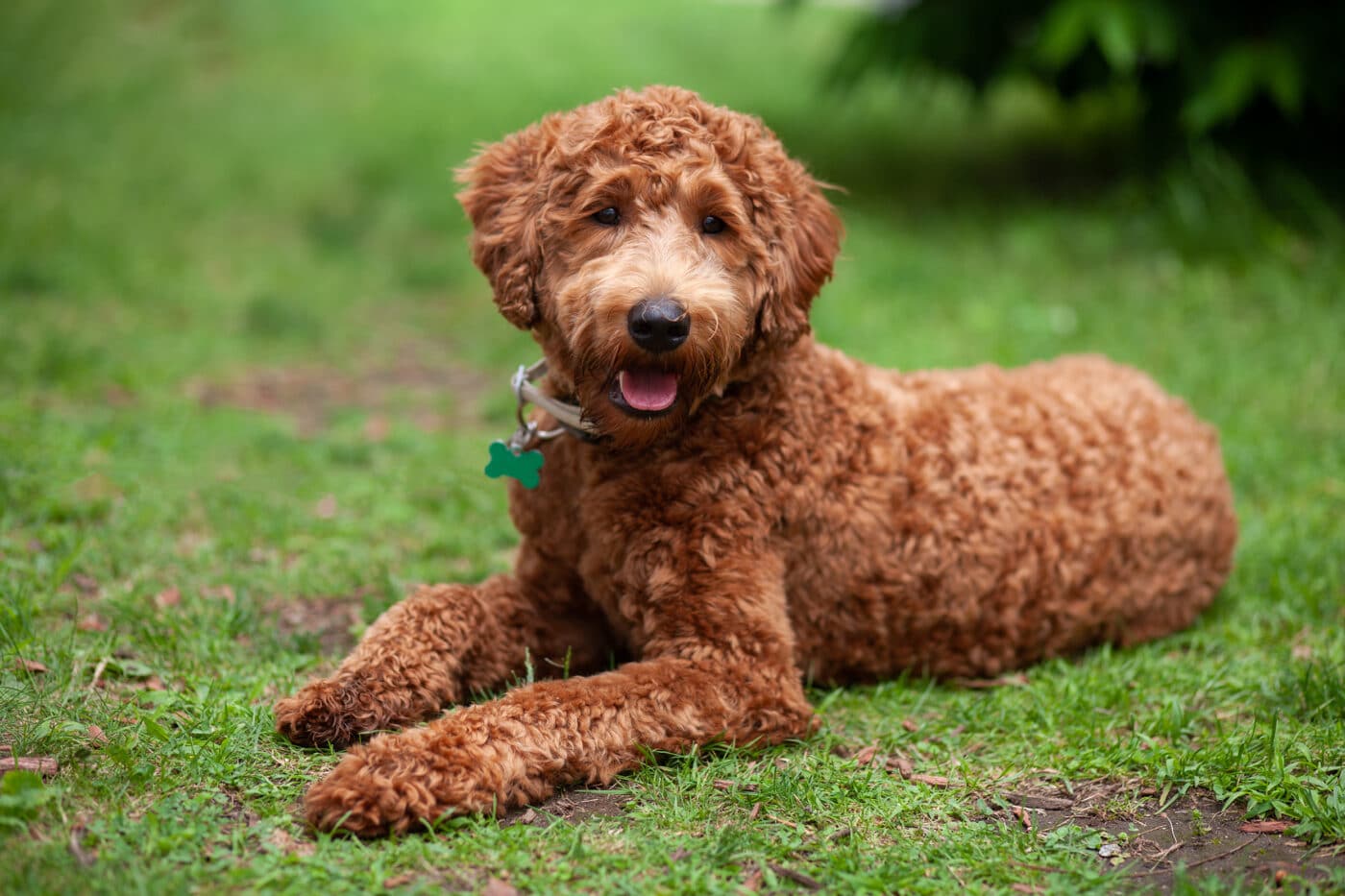
8. Goldendoodle (Golden Retriever and Poodle hybrid)
Another popular Poodle hybrid, the Goldendoodle, is known for its playful personality and hypoallergenic coat. However, like the Labradoodle, this breed inherits potential health problems from the Golden Retriever and Poodle. Goldendoodles are at risk for hip dysplasia, elbow dysplasia, and certain heart conditions such as subvalvular aortic stenosis. They are also prone to ear infections due to their folded ears, which can retain moisture and create an ideal environment for bacteria. Regular ear cleaning and possible treatments for recurring infections can add up to high veterinary bills. Eye diseases, especially cataracts, are also common in this breed. These medical issues make the Goldendoodle a hybrid that can come with significant long-term health care costs.
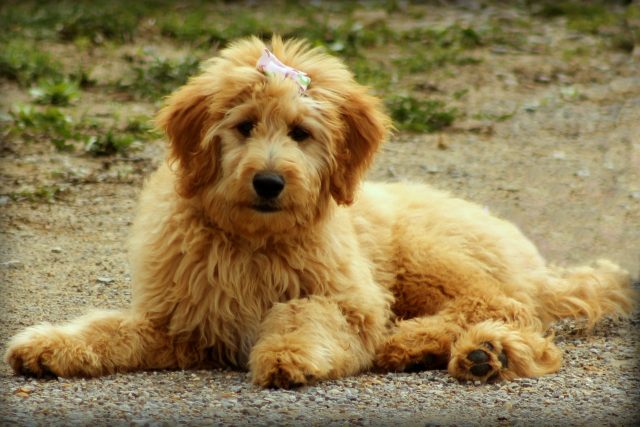
7. Yorkipoo (Yorkshire Terrier and Poodle hybrid dog)
A small dog breed that is a cross between a Yorkshire Terrier and a Poodle, the Yorkipoo can inherit some health problems from both parent breeds. The Yorkipoo is prone to dental disease, which is common in smaller breeds, often requiring regular cleanings or extractions. Patellar luxation is another common condition, as the small bones in the legs can lead to patellar luxation, which may require surgery. Additionally, the Yorkipoo can suffer from hypoglycemia (low blood sugar), especially when young, which requires careful monitoring and treatment. Their susceptibility to eye diseases such as progressive retinal atrophy (PRA) can also contribute to high medical costs, as specialist care may be required.

6. Pomsky (Pomeranian and Siberian Husky crossbreed)
Pomskies, the adorable cross between a Pomeranian and a Siberian Husky, may seem like the perfect little dog with lots of energy, but they have a list of health issues that can lead to significant veterinary bills. One of the main concerns for Pomskies is dental disease, a common problem in smaller breeds like the Pomeranian, which can lead to the need for regular dental cleanings or even tooth extractions. They are also prone to hip dysplasia, inherited from the Husky, and luxating patellas, which can cause pain and mobility issues. Their thick coats also make them susceptible to skin conditions and allergies. Pomskie owners should be aware that despite their small size, their potential veterinary bills can be quite large.
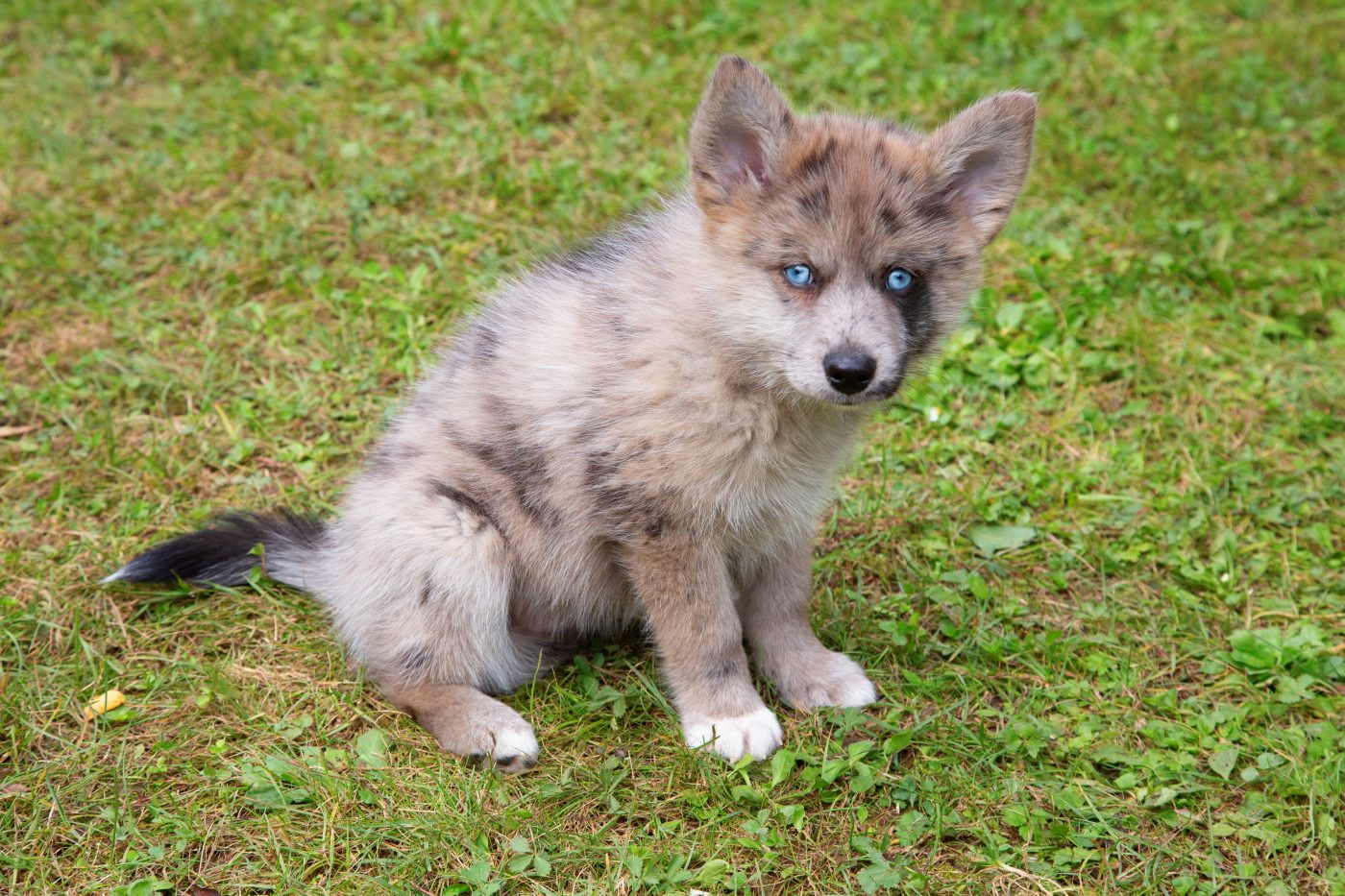
5. Shih-Poo (a cross between a Shih Tzu and a Poodle)
The Shih-Poo, a cross between a Shih Tzu and a Poodle, is an affectionate and playful breed, but they are prone to a number of health problems that can lead to significant veterinary bills. One of the most common problems in Shih-Poos is dental disease, which can lead to costly procedures like cleanings or tooth extractions. Their small size makes them susceptible to luxating patellas, a condition in which the kneecap slips out of place, which often requires surgery to correct. Additionally, the breed is known to be prone to respiratory problems due to the flat faces of its Shih Tzu parent, which can lead to costly treatments. Skin allergies and ear infections are common in Shih-Poos, contributing to ongoing veterinary costs.
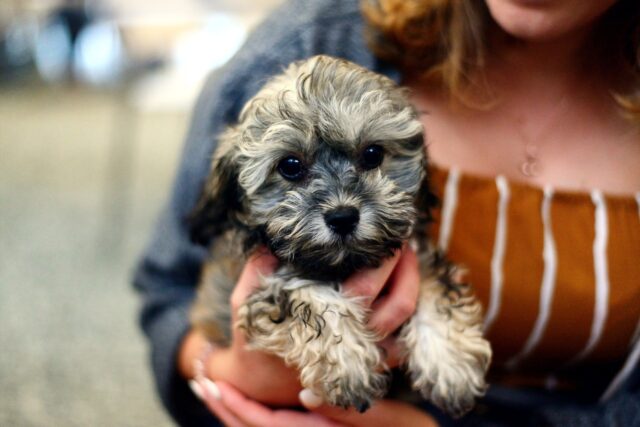
4. Cavachon (Cavalier King Charles Spaniel and Bichon Frise crossbreed)
The Cavachon, a cross between a Cavalier King Charles Spaniel and a Bichon Frise, is beloved for its affectionate and friendly nature. However, they are also prone to certain genetic health problems. One of the biggest concerns for Cavachon owners is mitral valve disease, a common heart condition in Cavaliers that can lead to heart failure if not properly managed. This condition often requires lifelong medication and regular visits to the veterinarian for monitoring. Additionally, Cavachons can develop eye diseases such as cataracts and progressive retinal atrophy (PRA), which can require expensive treatment. With potential heart and eye problems, Cavachon owners should be prepared for the possibility of significant veterinary bills.
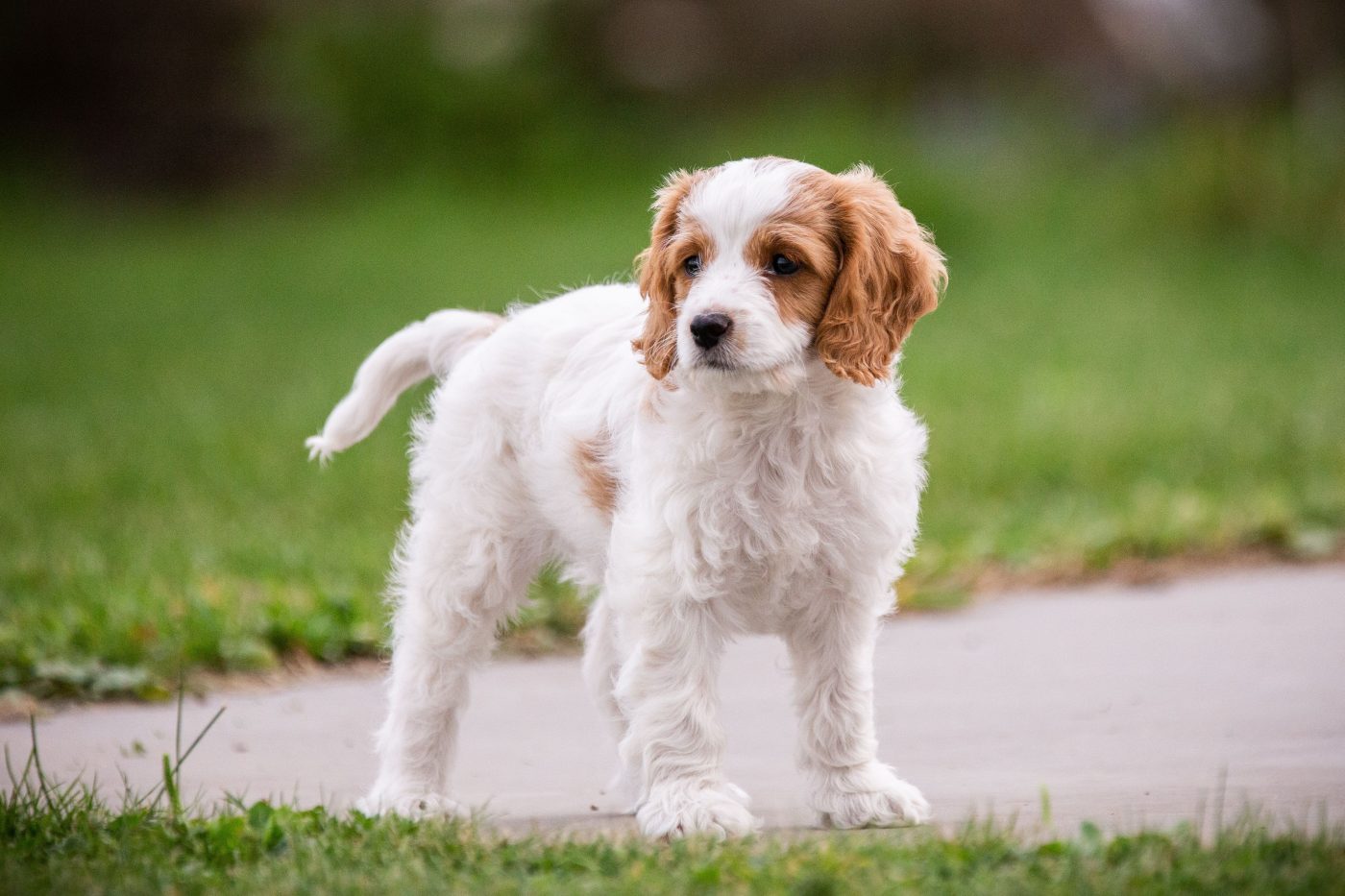
3. Schnoodle (a cross between a Schnauzer and a Poodle)
The Schnoodle, a cross between a Schnauzer and a Poodle, is another hybrid dog breed that has a number of potential health problems. Poodles are prone to conditions such as hip dysplasia and progressive retinal atrophy, while Schnauzers are prone to pancreatitis and bladder stones. These problems can lead to high veterinary costs, especially if surgery is required. Additionally, Schnoodles can suffer from skin allergies and ear infections, which require frequent veterinary care. Their teeth also require regular maintenance to avoid dental disease. With the combined health risks of both parent breeds, Schnoodle owners can expect to spend a significant amount of money on veterinary care over the course of their dog’s life.

2. Cockapoo (a crossbreed of Cocker Spaniel and Poodle)
The Cockapoo, a cross between a Cocker Spaniel and a Poodle, is a popular designer dog breed because of its friendly personality and adorable appearance. However, both parent breeds have some health issues that can affect the Cockapoo. The Cocker Spaniel is known for its tendency to suffer from ear infections, which can also be a problem for the Cockapoo because of its floppy ears. This hybrid is also at risk for hip dysplasia, eye conditions such as cataracts, and skin allergies. Additionally, the Cockapoo is prone to patellar luxation, a condition in which the kneecap becomes dislocated, sometimes requiring surgery to correct. This combination of health issues can lead to high veterinary bills, making the Cockapoo a hybrid that requires careful attention to its health.
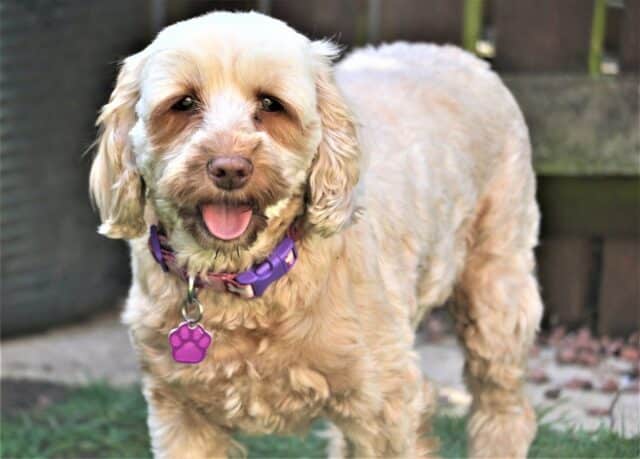
1. Puggle (a cross between a Pug and a Beagle)
The Puggle tops the list, a cross between a Pug and a Beagle, with a variety of health problems. Puggles are prone to respiratory problems due to their brachycephalic (short-nosed) Pug parent, which can require expensive surgeries or treatments to help them breathe better. Additionally, Puggles often inherit hip dysplasia from Beagles, as well as obesity issues, which can exacerbate joint problems and lead to heart disease. Ear infections are common in Puggles, as their Beagle-like ears can trap moisture and debris, leading to recurring infections. With respiratory, joint, and weight issues, Puggles are a crossbreed that can lead to significant veterinary costs over the years.

The Hidden Costs of Hybrid Dogs
While hybrid dogs can provide endless fun and companionship, they are not immune to health issues, especially when they inherit conditions from both parent breeds. The breeds listed here represent some of the hybrids that are most likely to incur high veterinary bills due to their susceptibility to various conditions. Whether it is joint problems, heart disease, or respiratory issues, the costs associated with caring for these dogs can add up significantly over their lifetime, making it important for prospective owners to plan accordingly for their beloved pet’s health care.

